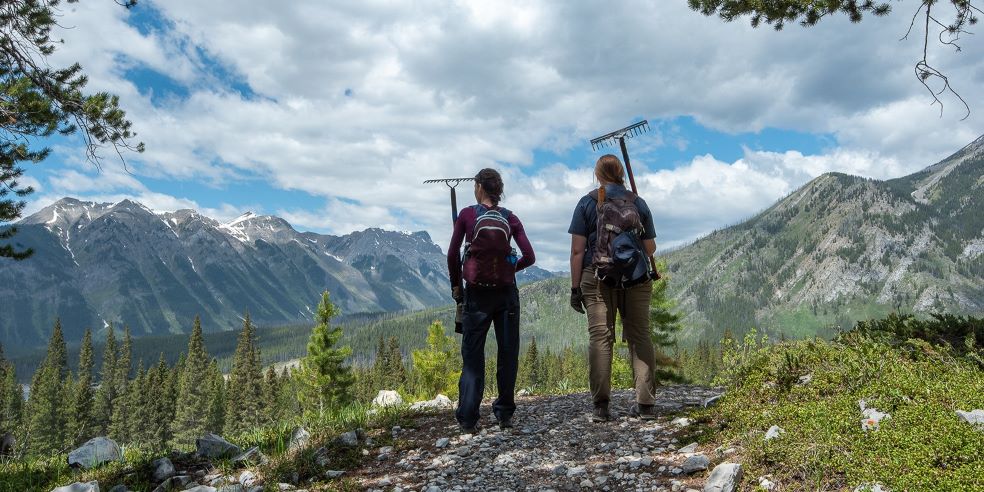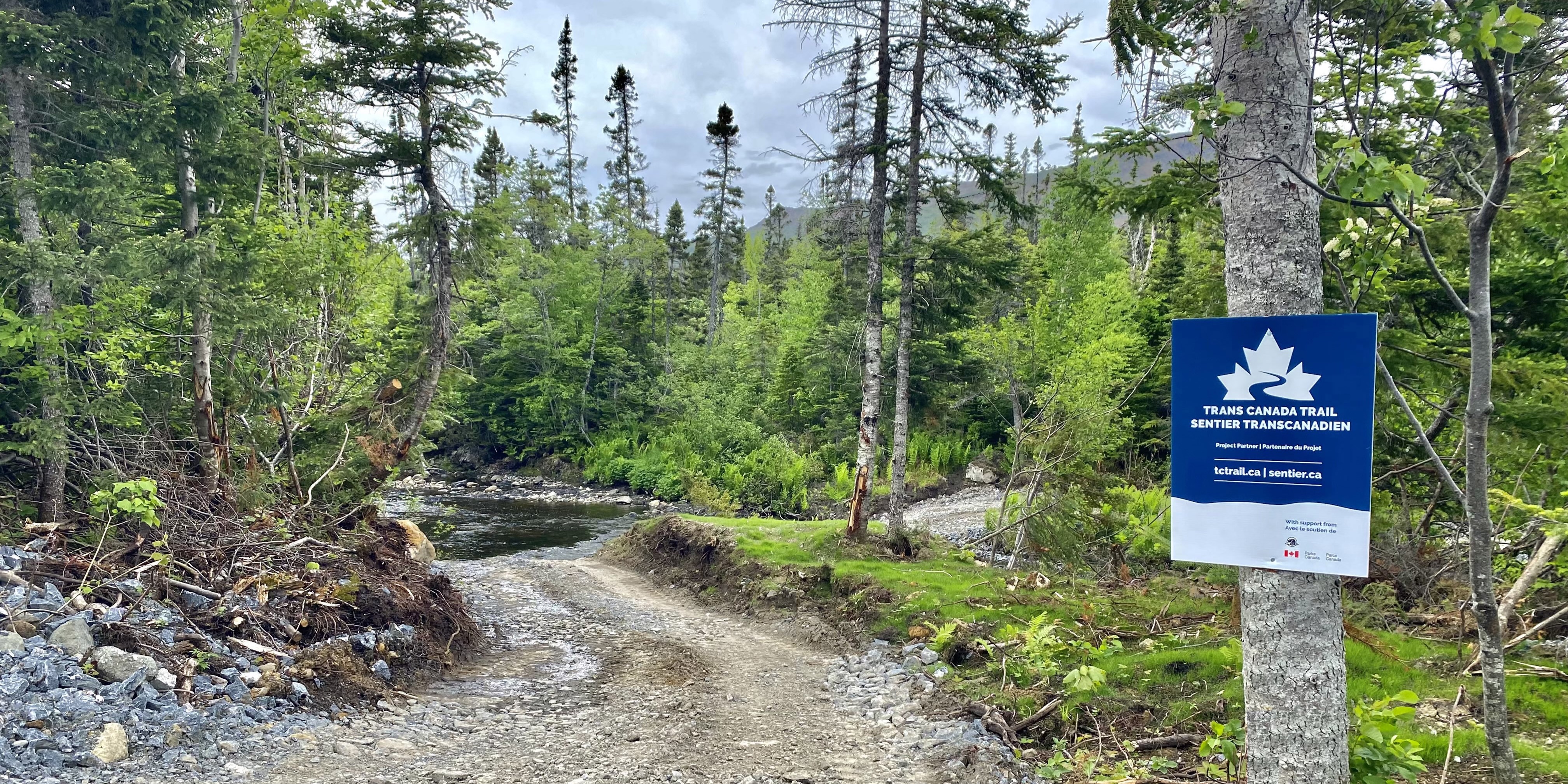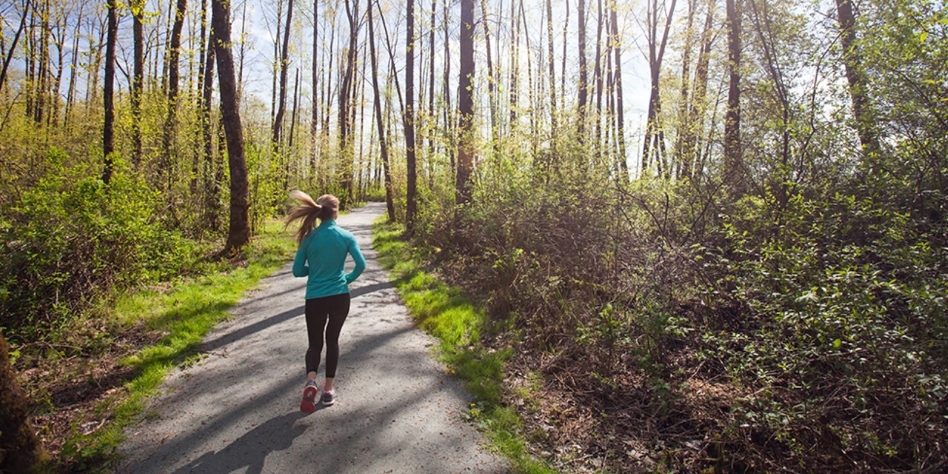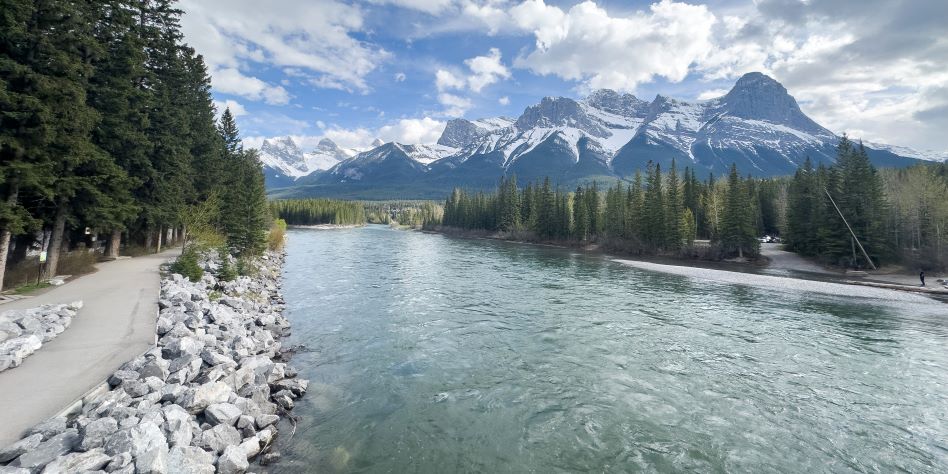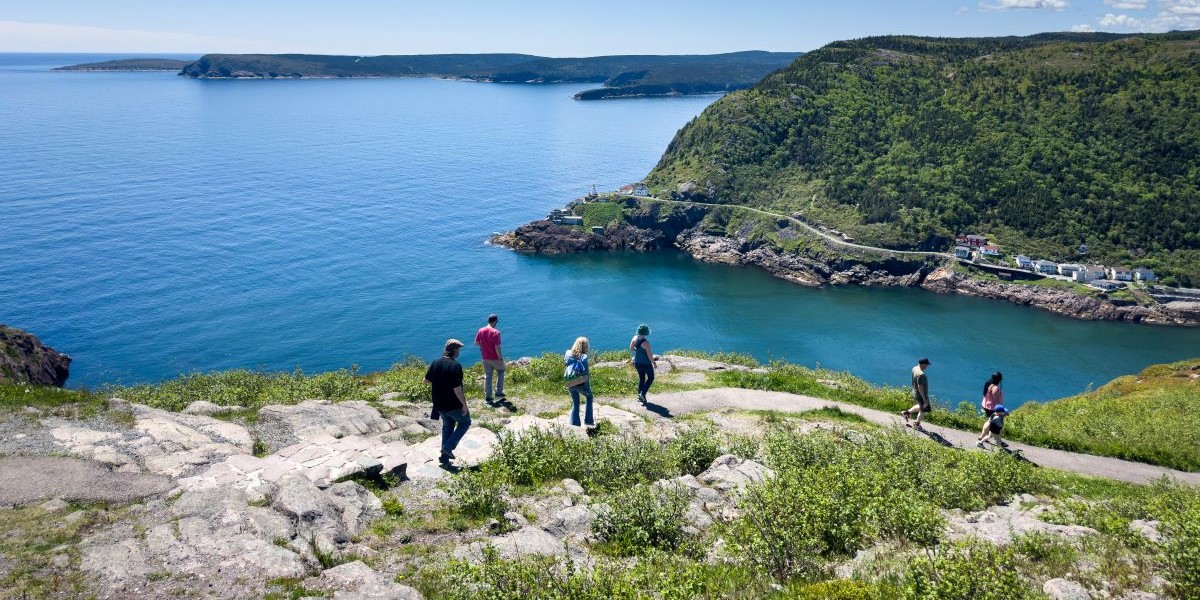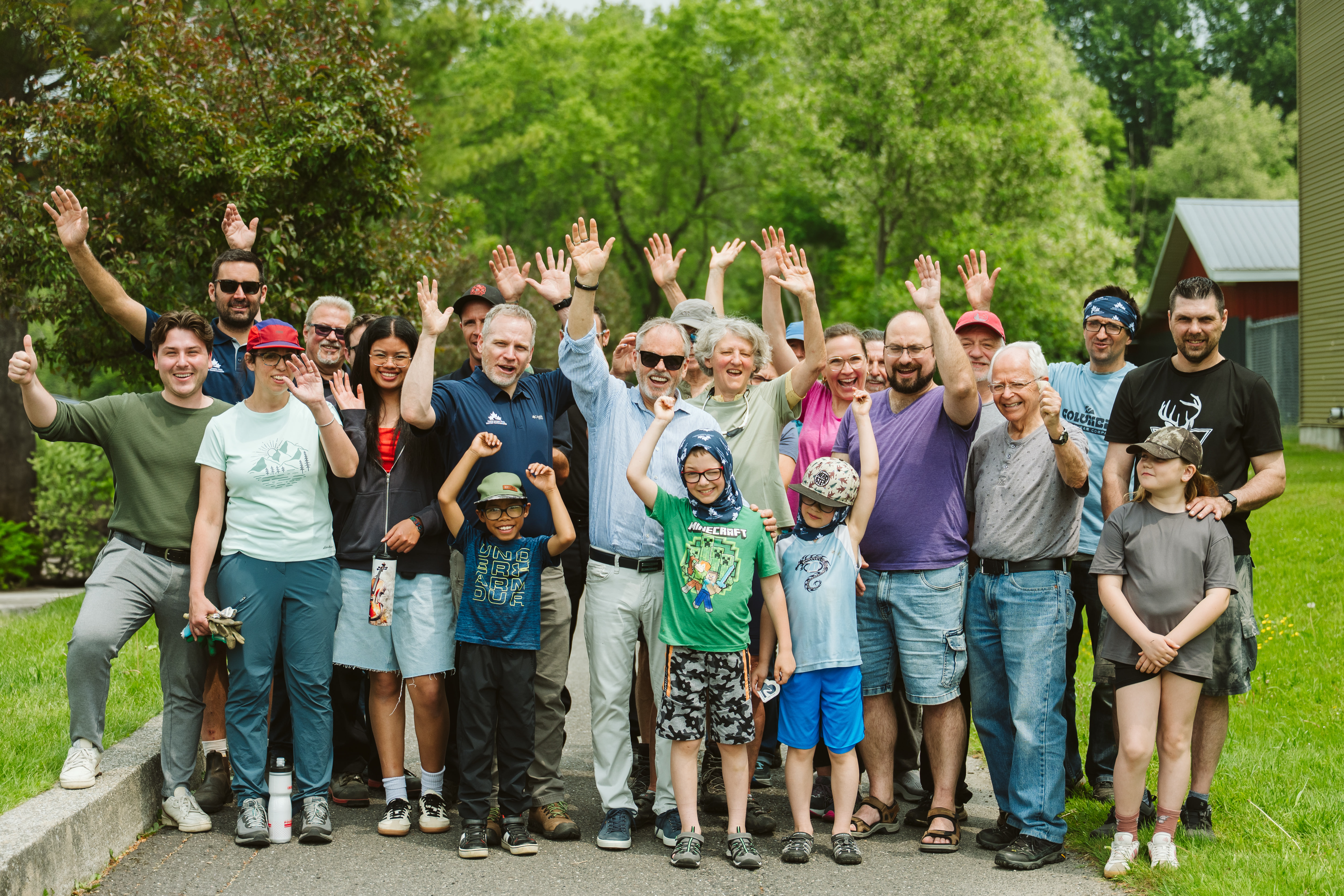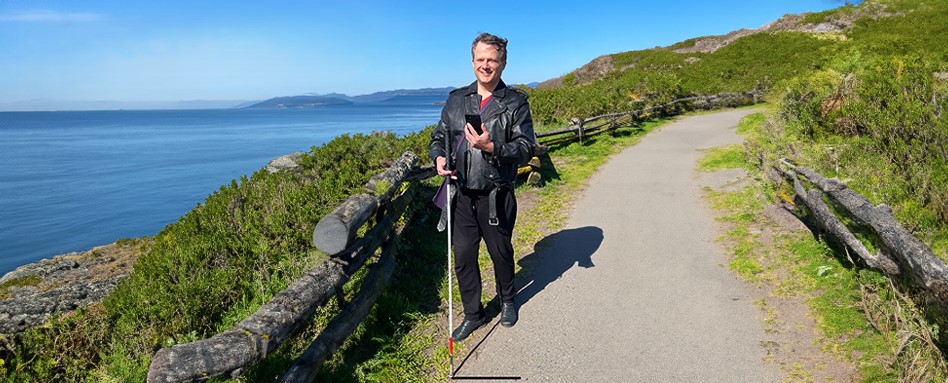National Léger Survey Reveals Canadians’ Trail Use on the Rise in 2023

72% of Canadians are Trail Users
We commissioned a new national Léger survey and it has a lot to say! The survey confirms that trail use continues to increase among Canadians. The wide-ranging survey also polled Canadians on their views on the economic and tourism impacts of trails and on the impact on local businesses including the amount spent while using trails.
The data were released on the eve of our first Parliament Hill Advocacy Days in Ottawa April 17- 18.
Several key themes emerged from the survey data. Read on to find out more!
Trails continue to be popular post pandemic
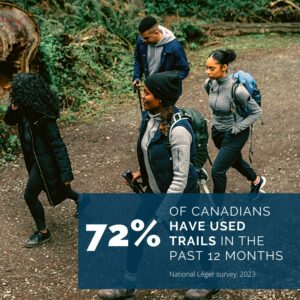
• Overall, 72% of Canadians have used trails in the past 12 months, up slightly from 70%, with 80% of Canadians noting that they intend to use trails in the next year.
• 89% of Canadians agree that trails add value to the quality of life in their community.
• 69% of Canadians said that easy access to trails and outdoor activities have an impact on where they choose to live.

Access to nature and enhancing our mental health are driving our trail use
The top three reasons that respondents identified for using trails include: to be outdoors and get fresh air (98%); to enjoy nature and see beautiful landscapes (97%) and to enhance mental health and relieve stress (94%).
Role of trails in combatting climate change, enhancing nature
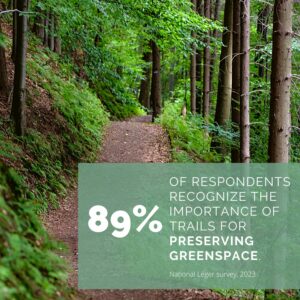
• The majority of Canadians would consider reducing their car use and would use active transportation (walking or cycling) options instead if trail networks in their community were available and accessible.
• Of the 85% of Canadians who have a personal vehicle or access to one in their household, 69% said they would consider replacing at least one out of every ten car trips by accessing trails instead. The average of daily trips that could be replaced is close to 50% (4.6 out of 10).
• 90% of respondents agree that trails allow for nature preservation and conservation.
• 87% of trail users across Canada do so to minimize their impact on nature and the environment and 93% agree it’s important to make nature accessible. 92% of those surveyed feel trails are an important tool to connect people to nature, to biodiversity and to culture.
• 70% of Canadians are concerned about the impact that the changing climate will have on their trail use and their enjoyment of trail activities.
• 89% of respondents recognize the importance of trails for preserving greenspace.
Investing in trails benefits the economy
• Over one third (35%) of respondents spent money while using trails in the past twelve months.
• The average spend was $179 with 25% of users spending more than $200 per person.
• 83% of respondents say they would support local businesses that in turn contribute to supporting and sustaining trails.
• 76% of respondents believe it is important to support local businesses while using trails.
Trails tourism is a significant and growing opportunity
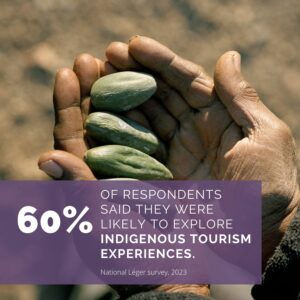
• 76% of respondents agree trails make an important contribution in terms of building a tourism economy.
• 56% of respondents said they were likely to include and use trails in their next vacation or travel plans.
• 60% of respondents said they were likely to explore Indigenous tourism experiences.
In terms of the role of government in building and maintaining trails, 85% of respondents feel it is important for government to continue to invest in the development and maintenance of trails, with the strongest sentiment in Alberta (88%).
“We know that Canadians greatly value access to nature and the preservation of natural settings and biodiversity. These survey results have reaffirmed this,” said Eleanor McMahon, President & CEO, Trans Canada Trail.
“Trails continue to make an important contribution to people’s lives, and to the enhancement of our mental and physical well-being. We saw Canadians’ trail use increase significantly during the pandemic, and this data confirms that trail use will continue to rise. This is great news.”
“Trans Canada Trail’s role in stewarding Canada’s national trail is given greater impetus when we realize that trails play such an important role in enhancing local businesses and our economy overall. With trail use on the rise, the return – when it comes to investing in trails and in destination development – is quite clear. These results demonstrate the tremendous potential for our continued work on executing Canada’s first National Trails Tourism Strategy, and in particular our recent partnership agreements with Destination Canada and the Indigenous Tourism Association of Canada,” McMahon said.
“We look forward to sharing these survey results during our discussions with Members of Parliament over the next few days,” McMahon concluded.
Survey methodology
A web survey was conducted with a representative sample of 1,500 French- and English-speaking Canadians, 18 years of age and older. Respondents were randomly selected from Léger’s web panel. Data collection for this study took place from February 14 to 22, 2023. For comparative purposes, probabilistic sample of 1,500 respondents would have a maximum margin of error of ± 2.5%, 19 times out of 20.




